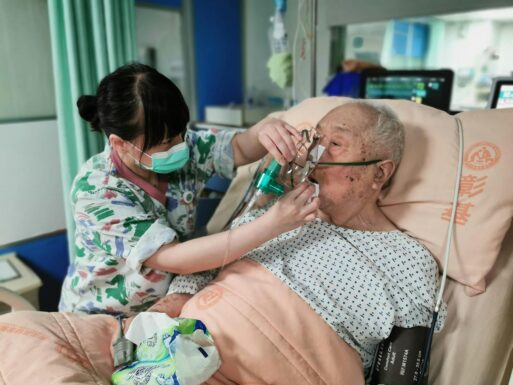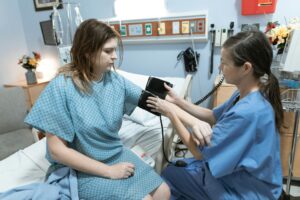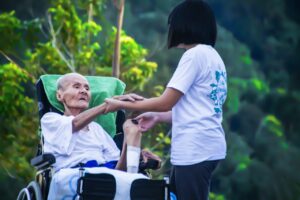
More nursing schools are offering palliative education to meet the demand for patient care.
Why are more and more nursing schools and universities offering palliative education? Because nursing can be an even tougher job when caring for patients with long-term chronic conditions or through the end of life. And as the need for palliative care increases, the additional education is proving to be valuable for the profession.
There has been exponential growth in palliative care programs in U.S. hospitals over the past two decades. And palliative care needs are also increasing in other healthcare sectors, according to Gina Andres, senior director of hospice and palliative care at Kaiser Permanente. Andres told Palliative Care News, “There’s a lot of trends [and] we see it from inpatient palliative care, outpatient palliative care, home-based types of palliative care and community-based and clinic-based as well.”

Nurses learn to better understand the needs of patients with chronic illness through palliative education.
While physicians often focus on diagnosis and treatment, palliative-skilled nurses could better meet a broader range of patient needs from comfort care to family education. The College of Nursing at the Medical University of South Carolina recently instituted a palliative education program for its students. Carrie McCormack is the lead palliative care faculty member there. McCormack told USAToday, “It is essential that we are including palliative care in our nursing curricula since nurses must be fully prepared to care for individuals with serious illnesses and their families.”
The school’s curriculum is provided through the End-of-Life Nursing Education Consortium project. The consortium is a national and international education initiative that provides nurses with a comfort level, emphasizing compassion and cultural sensitivity. The self-paced online modules, group discussions and lectures focus on practical, as well as sensitive materials. Since its inception, more than a million nursing students, registered nurses and other health care providers have benefited from palliative education through the organization.
Parag Raychoudhury is a future family nurse practitioner completing her clinical rotation at the Medical University of South Carolina. She considers her college’s emphasis on palliative care training essential. Raychoudhury relayed her feelings about the program to USA Today: “Palliative care isn’t just about death and dying,” she said. “Any illness deserves the respect of comfort and what the patient wants. … Focusing on quality of life is an important part of being a nurse.”
Rafic Hariri School of Nursing, American University of Beirut, Lebanon took a more unique approach to its palliative program. Dying patient simulations were used to immerse students in real-life patient scenarios. This role play offered a safe space to put palliative education into practice. And students gained a better understanding of patient goals and preferences while shifting their personal attitudes toward death and dying.

Nursing students learn skills like compassionate
care and communication through pallibative
programs
Silva Dakessian Sailian, an assistant professor at the school, shared highlights of their pilot program’s success with Nursing Times. Fifty-eight students were exposed to the simulations. Student learning outcomes included compassionate validation of grief and loss, managing pain at end of life, and therapeutic communications with family to provide information without inspiring false hope.
The activity bridged the gap between theoretical knowledge and the complexities of end-of-life care. One student expressed feedback stating, “Though we had the lecture, it is very difficult to communicate with the family of a patient who is dying, it is more difficult than it actually sounds.” The school remains committed to empowering students and fostering resilience in nursing practice.

 Palliative Education for Nurses Is on the Rise
Palliative Education for Nurses Is on the Rise


 “Help Me, Helen”
“Help Me, Helen”

 “As Tears Go By” by Marianne Faithfull
“As Tears Go By” by Marianne Faithfull














